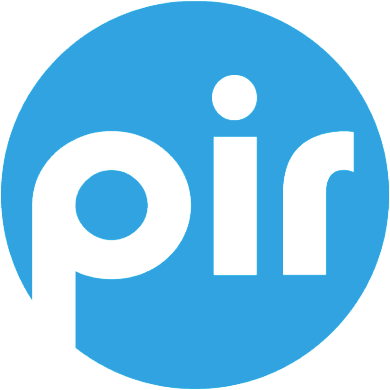Last week, UBM held its 4th annual Business4Better event in London. This two-day conference is part of the company’s Community Engagement Series, which was founded in Brazil in 2009 and now also takes place in India and the United States. Business4Better “brings together not-for-profits, social enterprises, business leaders and corporate responsibility professionals to share, learn and connect.”
Thuy LeDinh of Public Interest Registry had the opportunity to attend B4B for the first time and witness how UBM has made this event, along with the rest of the Community Engagement Series, part of its personal commitment to operate as a responsible and sustainable business in its longterm effort to bring the voluntary and business sectors together.
There has been a growing trend for businesses to exercise their corporate social responsibility (CSR) through foundations, events, campaigns, specialty programs, and projects for various causes. What is inspiring about UBM is that they have truly begun facilitating their business based on the idea of improving society. UBM understands that the interconnectivity between sectors is vital for success in a future society.
For decades, we have recognized three main sectors: business, government, and independent. In the standard model the third sector has essentially been perceived and labeled as a third wheel because its consituents (not-for-profits, NGOs, NPOs, etc.) have not clearly defined a universal name to use, and do not have the same resources that businesses and governments have access to. The overarching problem with this model is that the three sectors rarely – if ever – seem to work together cohesively, simultaneously.
LeDinh reflects on a story that Lord Michael Hastings, KPMG International’s Global Head of Corporate Citizenship, shared in London:
On April 24, 2013, an eight-story building collaped in Bangladesh. This building, the Rana Plaza, contained apartments, a bank, a variety of other shops, and garment factories for some of the world’s largest apparel companies, such as H&M, Primark, and Walmart. Despite concerns and evacuation requests that Bangladeshi NGOs had voiced to employers about cracks in the building, workers were prompted to show up the next day. That very next morning, the building collapsed, trapping 3,122 workers inside. After 17 long days of digging through rubble, the death toll reached 1,127 people, and approximately 2,500 people rescued from the building alive were injured. Given that the majority of these workers were women that were single parents and/or sole providers for their families, the entire village of people was disrupted, and effectively destroyed.
After this horrific tragedy, some of the questions we are left asking are:
- How do we prevent tragedies such as this from happening again?
- What dialogue needs to happen? Between who?
- Who will be held responsible for making sure that brands and businesses who set up international factories implement proper safety precautions and pass factory inspections?
- How do we promote ethical working environments, and ultimately ethical consumerism?
In the case of the Bangladeshi factory collapse, it would have been advantageous for dialogue to occur between advocates on behalf of the workers, businesses, and government officials – to regulate safety measures before allowing people to work in the building. Communication must work both ways; if businesses and governments work together with the independent sector, they will likely have more effective and efficient results.
Like UBM, Public Interest Registry strongly believes in a new paradigm where businesses increase their interaction with government and members of the independent sector in order to develop strong relationships that will improve society. We feel that to make this happen, there is a need to go beyond a digital impact and aim to create interpersonal connections via civil partnerships.

[Image taken from the World Economic Forum’s Report: The Future Role of Civil Society]
UBM is taking the first step toward trying to unite all three sectors; we would like to see this trend become a way of life across the globe.
Public Interest Registry will be offering .NGO, a new and exclusive domain extension representing “Non-governmental organization”, as a part of this initiative – to give NGOs around the world the opportunity to find and communicate with one another, with donors, and with potential business partners. The ultimate goal is to help NGOs build capacity and become sustainable while working towards improving society.
The .NGO domain is expected to launch in 2015. Its counterpart, .ONG – the acronym for .NGO used in Romance languages – will also become available to the public by Public Interest Registry at that time. To learn more information and submit an expression of interest for these domains, visit www.ngotld.org.
